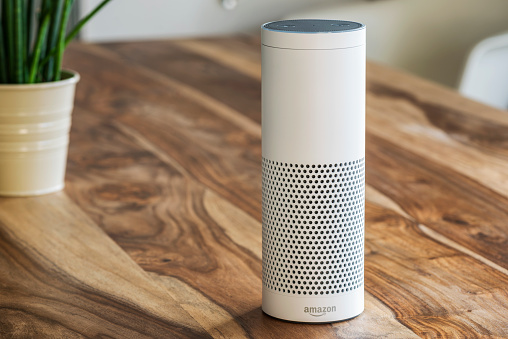Those intriguing little cylinders that seem like the perfect digital assistant/know-it-all/music player may soon have a dark side. The devices are supposed to be triggered only when asked, such as “Hey, Alexa.” The New York Times reports:
- “But each company has filed patent applications, many of them still under consideration, that outline an array of possibilities for how devices like these could monitor more of what users say and do. That information could then be used to identify a person’s desires or interests, which could be mined for ads and product recommendations.
- “In one set of patent applications, Amazon describes how a “voice sniffer algorithm” could be used on an array of devices, like tablets and e-book readers, to analyze audio almost in real time when it hears words like “love,” bought” or “dislike.”
New patents for #GoogleHome and #AmazonAlexa for technology to listen in on your conversations and sell ads depending on what you're talking about at home. #infosec @cryptoharlem https://t.co/1fkJ7rZPui pic.twitter.com/REFVfDHn6X
— Octavio Blanco 🥑 (@OctavioNYC) April 1, 2018
Amazon and Google, the primary manufacturers of the devices say privacy has always been a priority.
- In a statement, Amazon said the company took “privacy seriously” and did “not use customers’ voice recordings for targeted advertising.”
- From Google: “All devices that come with the Google Assistant, including Google Home, are designed with user privacy in mind.”
But a study done by Consumer Watchdog, an advocacy group says the companies are considering ways to someday sell information about you to advertisers.
“When you read parts of the applications, it’s really clear that this is spyware and a surveillance system meant to serve you up to advertisers.” The companies are “basically going to be finding out what our home life is like in qualitative ways.”—Jamie Court, president, Consumer Watchdog.



